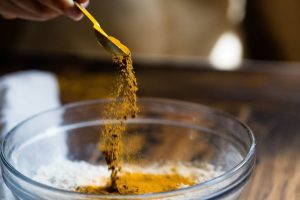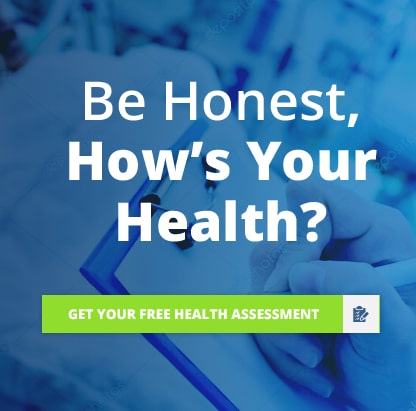At school, most of us were taught to memorize the 13 essential vitamins and 10 essential minerals. As helpful as these are to maintaining good health, they are far from the only micronutrients that we need.
In reality, the full list of lesser-known supporting micronutrients is still a work in progress. Many other organic compounds help us absorb vitamins better, store minerals for longer, or that boost complex body processes such as oxidation or inflammation.
Today, we will analyse the benefits provided by oligomeric proanthocyanidins (OPCs). This close cousin to vitamin C can help us delay brain damage and skin aging, speed up wound healing, and improve our heart health. We will see what they are, how they act, and why you should get more of them
What are Oligomeric Proanthocyanidins?
Also known as OPCs, these are plant-made compounds with strong antioxidant and anti-inflammatory effects.
Chemically speaking, they belong to a larger category of compounds known as polyphenols. OPCs were discovered by Jacques Masquelier during the middle of the 20th century.
Masquelier was researching the possible reasons why some of the health benefits of consuming specific foods (especially, red and purple berries and fruits) could not be replicated with supplements of pure vitamin C. This is how he discovered vitamin C co-factors, or other smaller, supplemental compounds that are meant to help the action of the larger vitamin.
OPCs are just one of the co-factors that Masquelier discovered. However, he immediately recognized them as noteworthy because they are non-toxic, less astringent and relatively easy to absorb when compared to other polyphenols.
What Foods Contain OPCs?
OPCs are relatively abundant in nature. If you are looking for food sources, start with any red, purple, or bluish berries and vegetables. These include:
- Grapes
- Cranberries
- Black currants
- Blueberries
In addition, OPCs can be found in especially large concentrations in cocoa beans, maritime pine bark, and cinnamon bark.
Health Benefits of OPCs
Thanks to their anti-inflammatory and anti-oxidant action, OPCs can impact different systems and organs in the body. Overall, their main mechanism of action can be usually linked to their ability to reduce the progressive damage of aging, and of speeding up healing and restoration.
The specific ways in which these basic actions translate around the body are still being tested. However, we can already distinguish three main branches of benefits.
Skin, Bones and Muscles
The first and best-documented effect of OPCs is that they provide a “power-up” bonus for Vitamin C. In turn, vitamin C plays a key role in the production of collagen, the elastic protein that helps repair and maintain skin, joints and ligaments.
Because of this, it is now also pretty clear that OPCs can help speed wound healing after surgery, and help protect the skin from the damage caused by UV rays.
When it comes to bones and muscles, so far the impact seems particularly significant for women. After menopause, it is common for women to experience joint pain and to progressively lose bone density. This happens because the lack of estrogen that follows menopause causes the body to slow down its collagen production. This leaves an open door for regular wear-and-tear to take a deeper effect.
During a placebo-controlled study, published in 2019, researchers found that high doses of OPCs, extracted from French maritime bark, could improve bone and joint health after just 12 weeks.
Heart Health
Cardiovascular disease is most visible during a violent heart attack, but in reality, it is caused by the creeping damage of hardening arteries and high blood pressure. This risk is particularly strong for those who also suffer from type 2 diabetes or pre-diabetes (metabolic disorder).
However, this slow process provides many opportunities for a reversal. For patients with metabolic disorders, a combination of lifestyle habits and OPCs can provide a powerful tool. A 2009 study compared the heart inflammation markers of two groups of diabetic patients: one was receiving a standard treatment with glucose-lowering medication and diet, accompanied by a grapeseed extract rich in OPCs. The other group followed the same standard medication and diet but was given a placebo instead of the OPCs.
After just 4 weeks, the group that took the OPCs had less inflammation, better sugar control and lower cholesterol levels than the other group.
Brain Function
The latest cluster of benefits by OPCs has to do with brain function, memory, and attention. Ever since the 1990s, researchers have known about the potential of antioxidants in helping preserve brain function from ageing, and staving off dementia and memory problems.
However, OPCs have two aces under their sleeve. First, a very long study performed in mice showed OPC extracts could improve mental acuity and the ability to navigate mazes and solve problems.
Second, a major Polish trial published in the European Children and Adolescent Psychiatry Journal showed that using OPCs extracted from pine bark can improve the symptoms of ADHD (Attention Deficit and Hyperactivity Disorder). After just one month, the patients in the study were scoring better on intelligence tests and learning scales.
Benefits of OPC Supplements
At first glance, it may seem that all you need to ensure your brain, heart and skin remain healthy is to keep a well-balanced diet that includes lots of blueberries. While this is definitely a great way to maintain health, you may have noticed that all the therapeutic studies we linked to used standardized OPC extracts.
This is because, to heal or treat rather than to upkeep, you will need to have access to larger amounts of OPCs. Plus, they need to resist the trip through your stomach acids and liver before they can be properly absorbed.
Because of this, if you need to receive a steady, reliable and standardized amount of OPCs then you may want to consider an OPC supplement. OPC Synergy® by Standard Process offers 410 mg of oligomeric Proanthocyanidins (a similar dosage to that of the heart health and osteoporosis studies), in an easy-to-absorb gel capsule.




